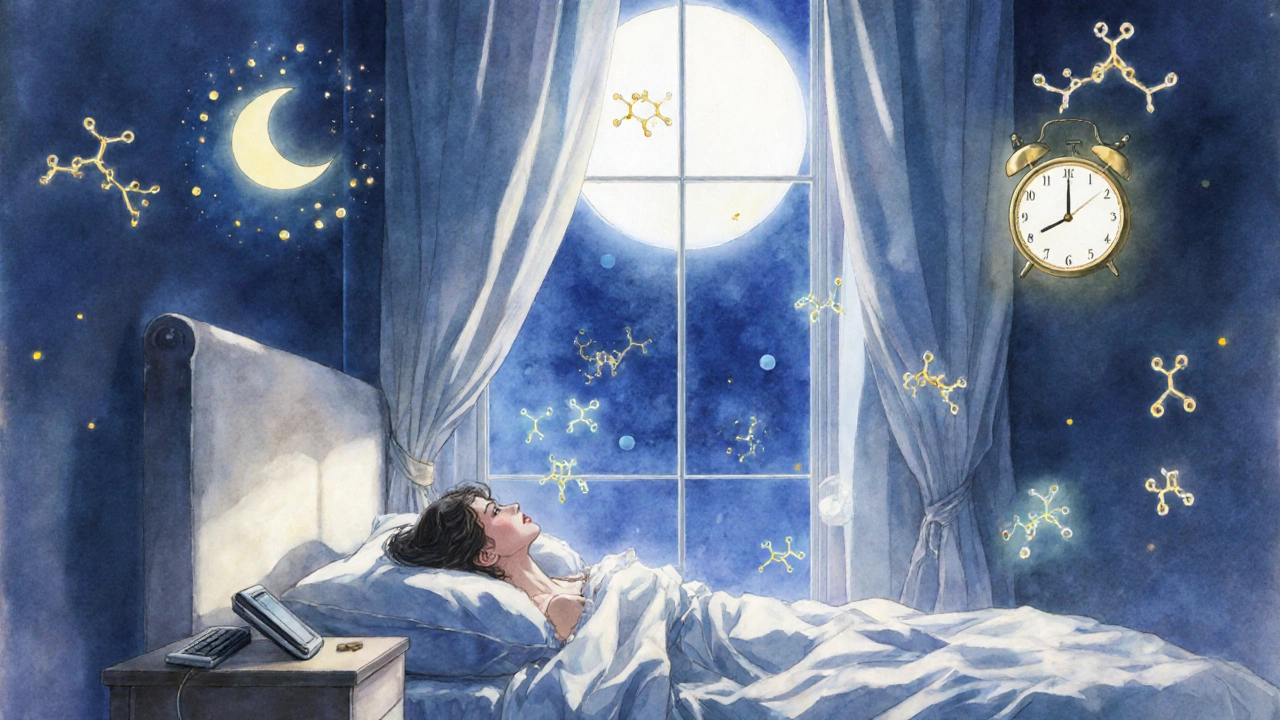Hormonal Insomnia: Causes, Effects, and What You Can Do
When you can't sleep—not because you're stressed or had too much coffee, but because your body feels off—hormonal insomnia, a sleep disorder triggered by shifts in hormone levels. It's not just bad sleep; it's your endocrine system screaming for balance. Unlike regular insomnia, this one doesn't go away with better bedtime habits. It comes back month after month, especially around your period, during perimenopause, or after childbirth. And it’s not rare—nearly 60% of women report sleep problems linked to hormonal changes, according to sleep studies tracking menstrual cycles and menopause.
estrogen, a key female hormone that influences serotonin and body temperature drops right before your period, and that dip can trigger night sweats and wake you up. progesterone, the calming hormone that helps you fall asleep, also falls during this time, making it harder to stay asleep. Then there’s cortisol, the stress hormone that should drop at night. When it doesn’t—because of chronic stress, thyroid issues, or adrenal fatigue—it keeps your brain wired when it should be shutting down.
Hormonal insomnia doesn’t just make you tired. It messes with your mood, your focus, even your metabolism. You might notice weight gain around your middle, brain fog by midday, or irritability out of nowhere. It’s not "all in your head"—it’s your biology. And while many doctors push sleeping pills, those don’t fix the root. What works? Timing your meals to stabilize blood sugar, avoiding caffeine after noon, and getting morning sunlight to reset your circadian rhythm. Some find relief with magnesium or adaptogens like ashwagandha, but only if the hormonal imbalance is addressed.
The posts below dive into how medications, supplements, and lifestyle changes intersect with hormonal sleep issues. You’ll find real comparisons—not guesswork—on what helps and what doesn’t. From how certain drugs affect cortisol to how natural alternatives support hormone balance, this isn’t theory. It’s what people are actually using to get back to sleep.
How to Cope with Letrozole-Induced Insomnia
- DARREN LLOYD
- 12
Learn how to manage insomnia caused by letrozole with practical sleep strategies, supplements, and medical options. Real tips for women on hormone therapy who struggle to sleep.
READ MORE
